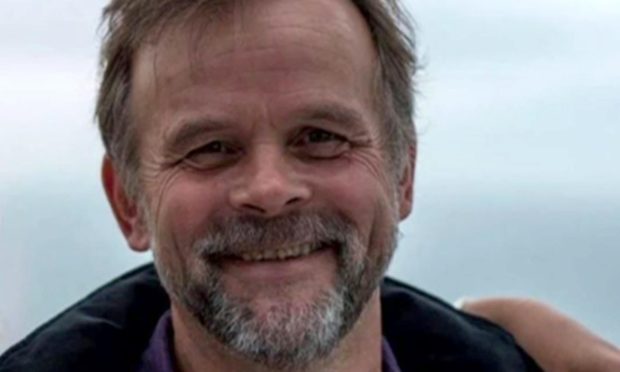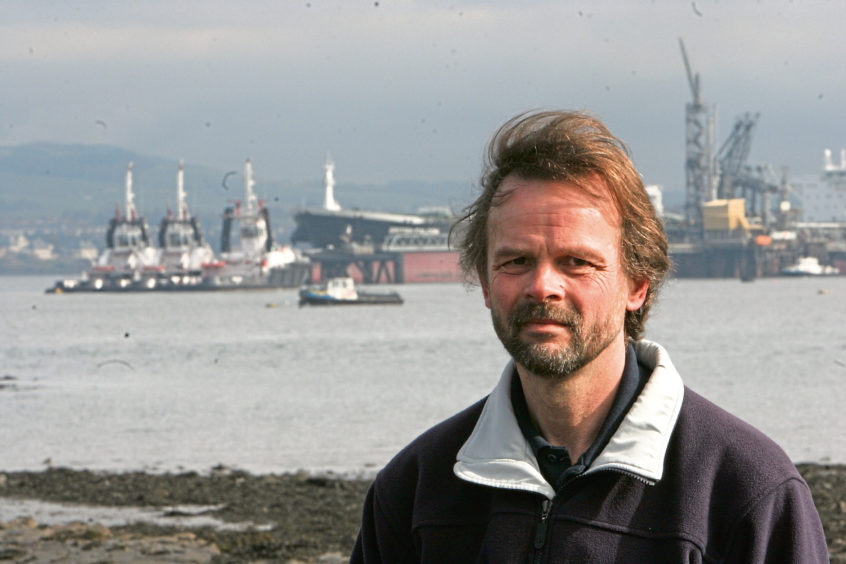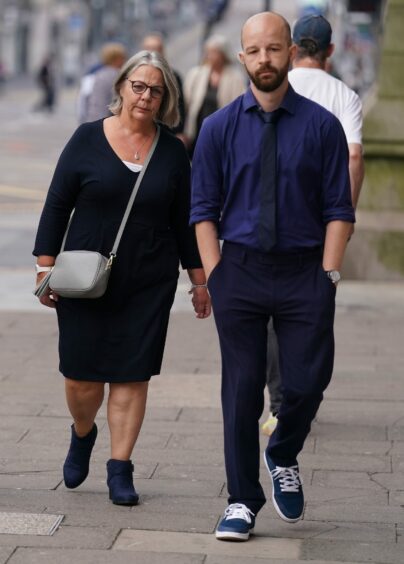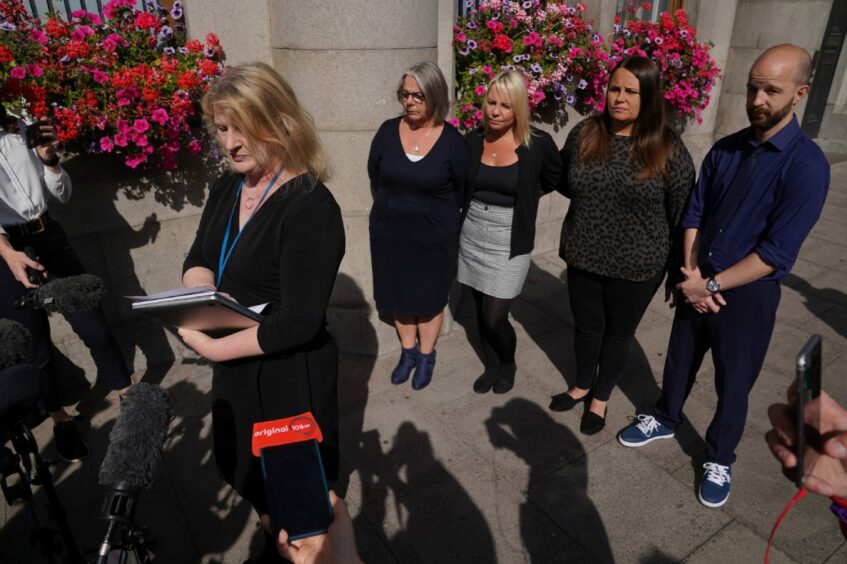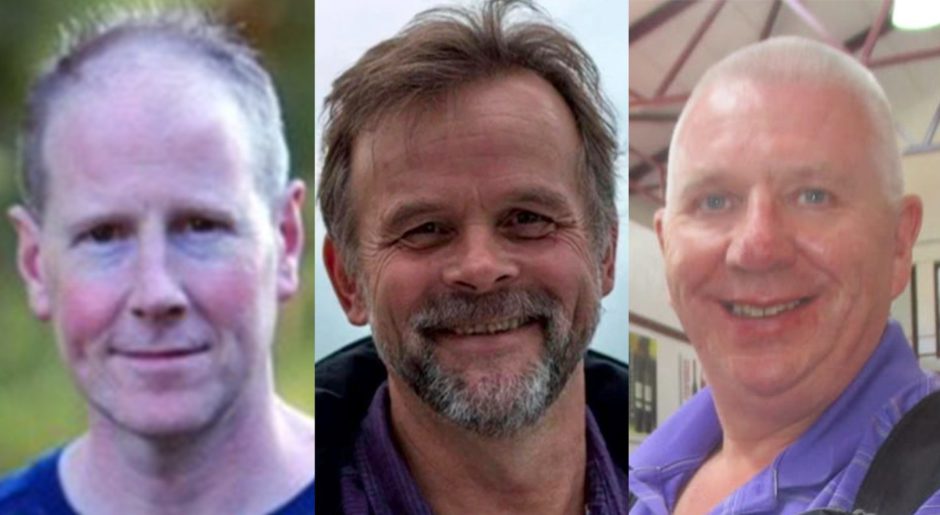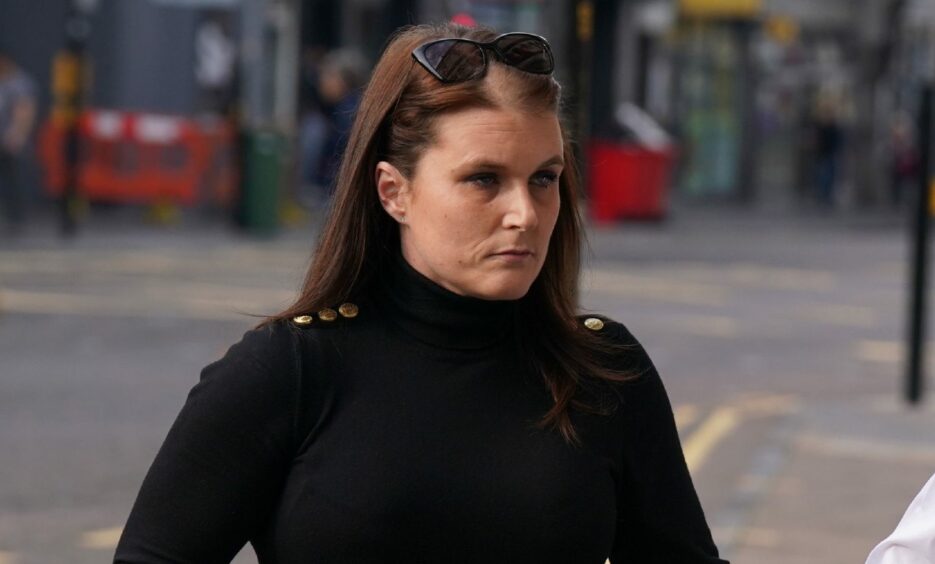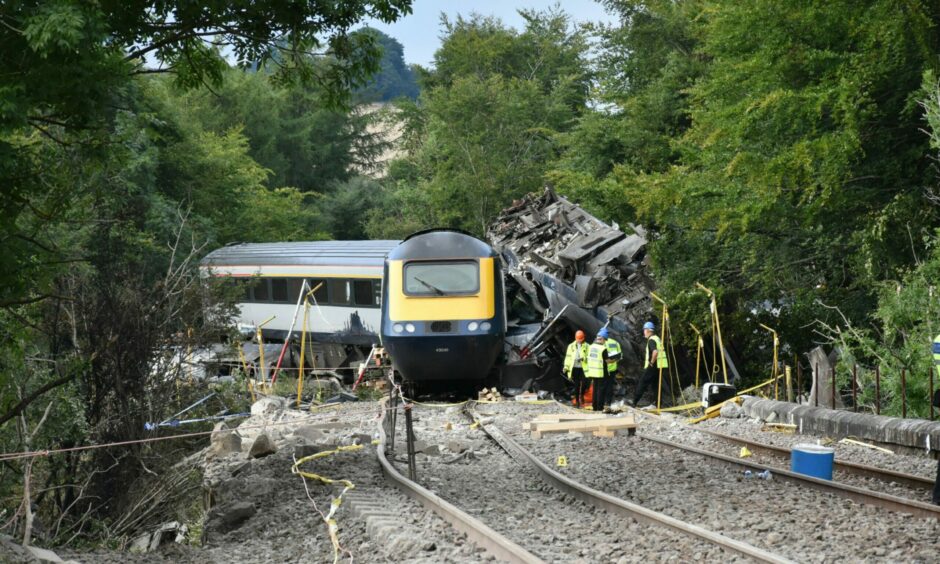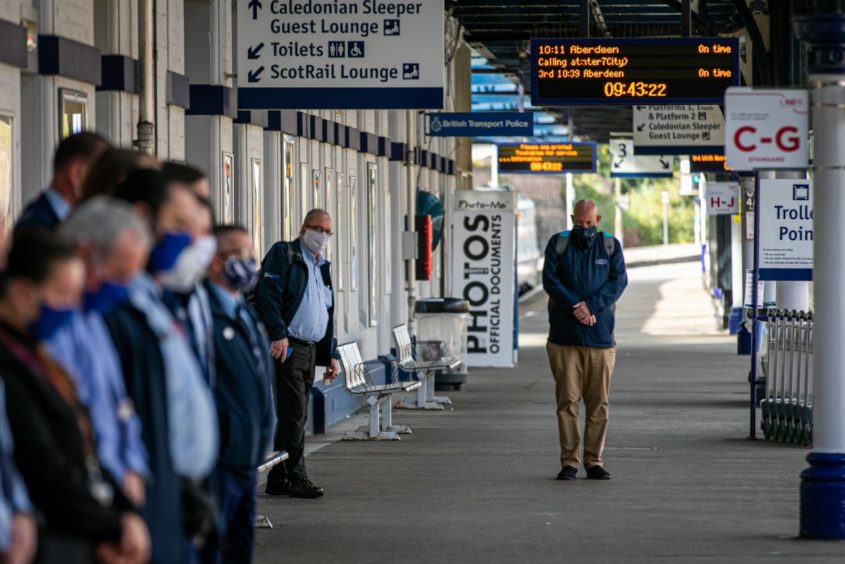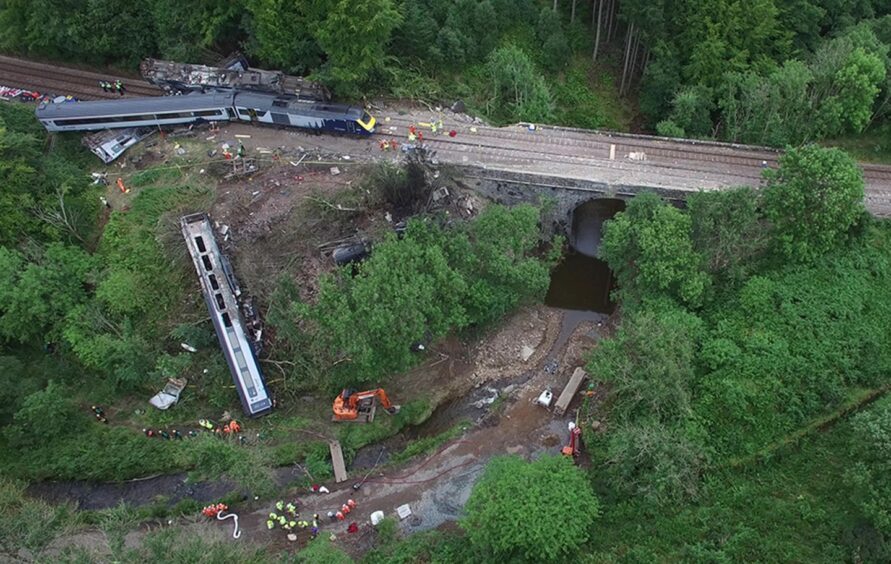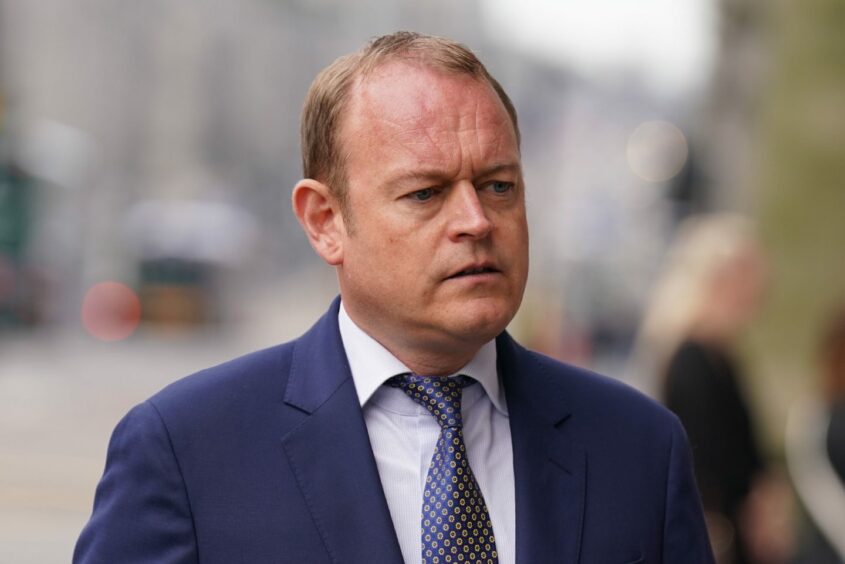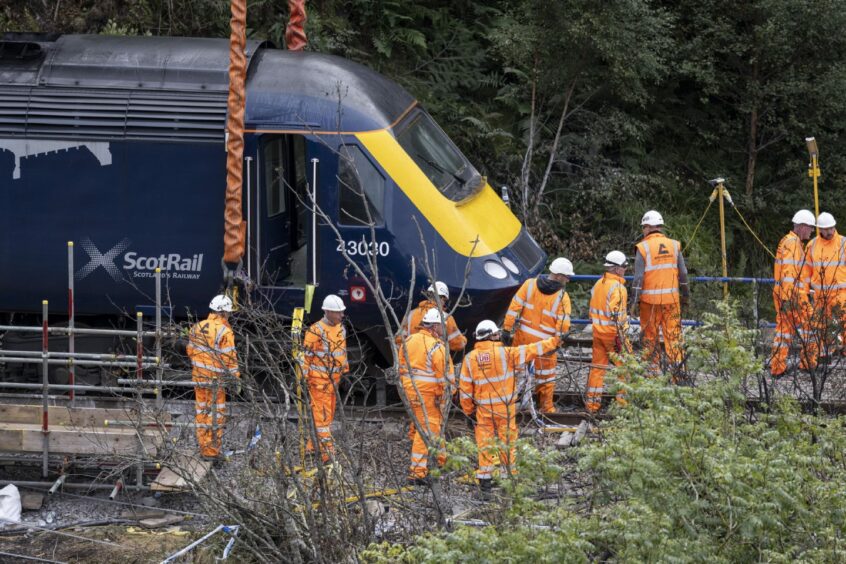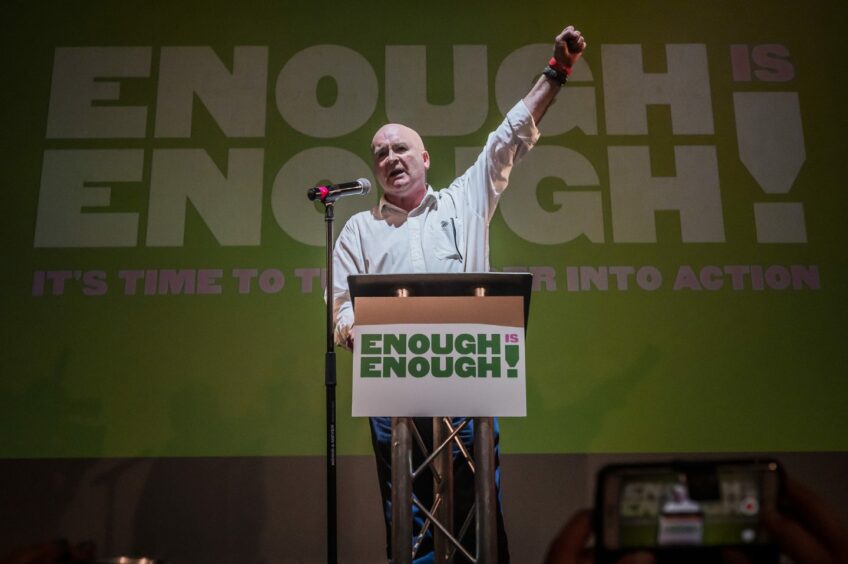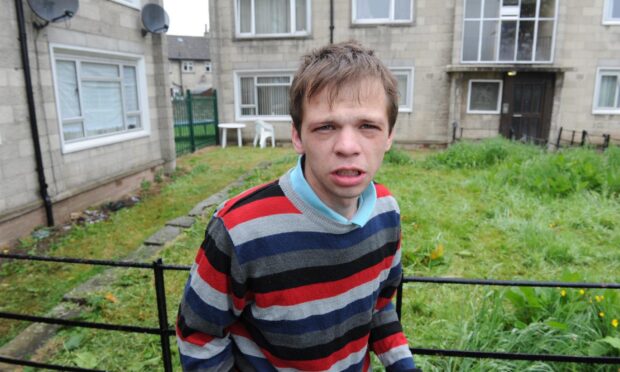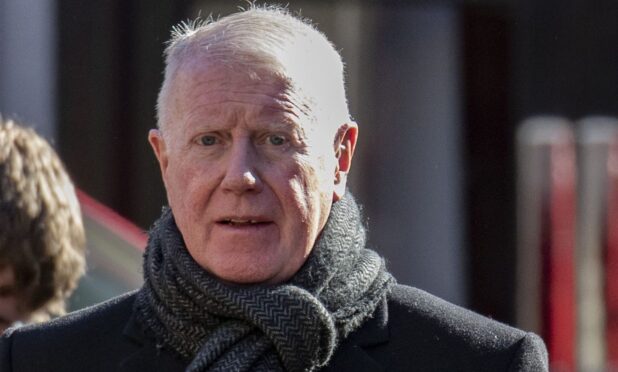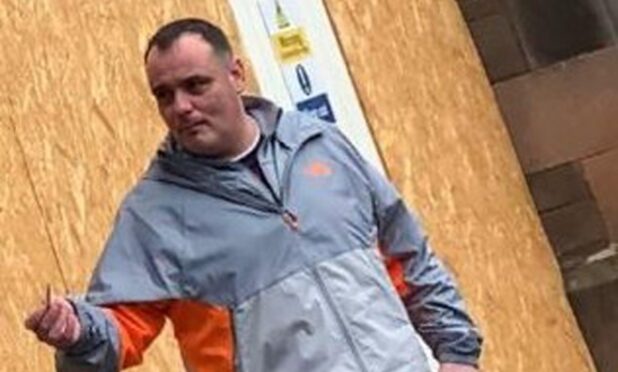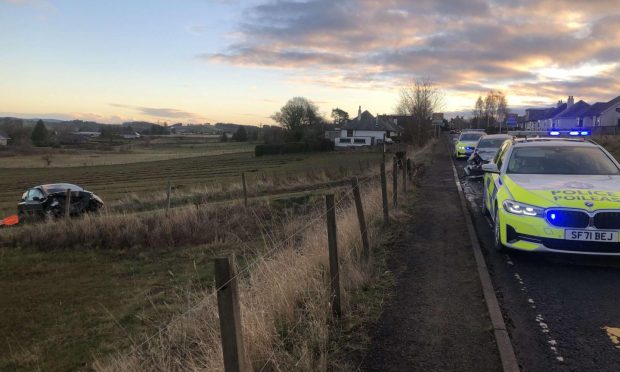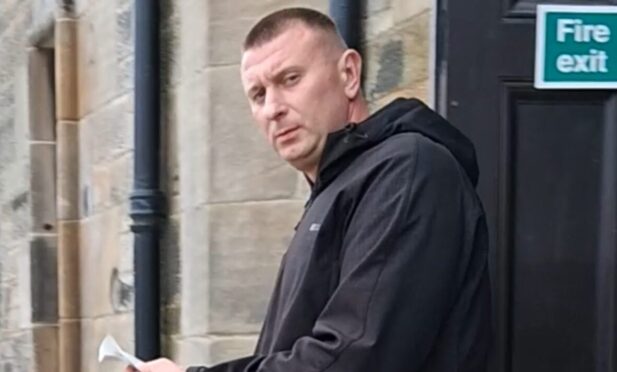The wife of the passenger killed in the Stonehaven rail crash has said their lives were “ripped apart” on their wedding anniversary.
Christopher Stuchbury, 62, had been travelling to Dalmeny, near Edinburgh, but his first train had been cancelled due to the severe weather in August 2020.
Mr Stuchbury was travelling to Fife for one of his final shifts as a tugboat master in the Firth of Forth on the morning of August 12, when the train came off the rails at Carmont.
A member of ScotRail staff told Mr Stuchbury he could get on the Glasgow-bound train instead and change at Dundee.
He was among three people who died when the train derailed.
At the High Court in Aberdeen on Thursday, Network Rail pleaded guilty to health and safety failings over the crash.
Prosecutor Alex Prentice KC read out statements from those impacted, including Mr Stuchbury’s wife Diane.
Her statement read: “The 12th August in our house was a special day – the day we married.
“He had one last trip before retirement.
“On that day in 2020, our lives were ripped apart.
“He and I have been robbed of a future together as a family.”
Tragic train conductor
Meanwhile, train conductor Donald Dinnie‘s partner has described the heart-wrenching moment she discovered her soulmate had been killed.
Trish Ewen spoke of her ordeal three years after the tragedy after Network Rail appeared in court and admitted a catalogue of failures leading to the crash.
Mr Dinnie, 58. from Aberdeenshire, lost his life three days before his 59th birthday.
Train driver Brett McCullough, 45, also died.
Survivors
Among those who survived the crash was conductor Nicola Whyte, 31, who was travelling on the train as a passenger as the service she had initially been allocated to travel on had been cancelled.
In a statement read out in court by Mr Prentice, Ms Whyte said her life has “completely changed” since the crash.
She said: “I have suffered three years of anxiety, nightmares and being unable to sleep.
“I jump at loud noises and rarely use buses or trains anymore, and aeroplanes are out of the question.”
Mr Prentice detailed how Ms Whyte had to give up her ambition of becoming a train driver and also her job as a conductor which she “loved”.
Her statement added: “It has also had an impact on my partner and family as they have had to help me heal.
“That day hurt me physically, mentally and also financially and feels like my life has been put on hold.”
Another survivor was lab technician Kamila Diufer, 44.
Ms Diufer was a coach B passenger and seconds before the crash, she spoke with Mr Dinnie.
She suffered a fractured spine and injuries to a leg and eye.
Coach C passenger Alberto Moniz is a 31-year-old chef who had lost his job due to lockdown and was heading to Dundee for the first day of his new role.
He suffered minor head injuries and heroically helped those with more serious injuries to safety.
Rebecca White, 29, a forensics scientist, was on her way to work in Dundee.
She was in coach D and she suffered facial and shoulder injuries.
She said: “I’m sad, I’m scared and I’m scarred.
“I’m a different person to three years ago. I’m so angry with Network Rail.”
Heather Conger, 29, was on the train with her sister Karli, 22.
Originally from the US, Heather started a masters degree at Aberdeen University in September 2019 and Karli was visiting her.
Heather suffered serious injuries in the crash, including a collapsed lung.
In fact, it was her sister and other passengers who helped her away from the train after the collision.
Heather was taken to hospital and was in intensive care for two days.
A 32-year-old Stonehaven woman, who has asked not to be named, has also described what it was like to be on the train when it crashed after a storm in August 2020.
It is the first time a crash survivor has spoken publicly about the tragedy.
‘Significant’ weather conditions
Network Rail admitted health and safety failings over the crash, covering the period from May 1 2011 to August 12 2020.
It admitted it failed to ensure, so far as was reasonably practical, that railway workers not in its employment and members of the public travelling by train were not exposed to the “risk of serious injury and death from train derailment” as a result of failures in the construction, inspection and maintenance of drainage assets and in adverse and extreme weather planning.
Alex Prentice KC, prosecuting, told the court the weather had been “so significant” on the day the derailment took place that both Aberdeen City Council and Aberdeenshire Council declared a major emergency.
Passengers affected by cancelled trains as a result of torrential rain described it as “biblical”.
He told the court that recordings of a conversation between Mr McCullough and the Carmont area signaller prior to the crash confirmed the train driver queried whether there was a reduced speed limit in place on the line to Stonehaven.
The signaller told Mr McCullough: “Eh no, everything’s fine between myself and Stonehaven.”
The court heard when Mr McCullough pulled the emergency brake, there was “insufficient time” for it to have any impact on the train’s speed.
Network Rail admissions
Network Rail admitted:
- failing to ensure a drain at the crash scene was built according to design papers;
- failing to arrange a “handover” meeting with contractors to check the drain had been built properly – some parts were upside down;
- failing to input details of the drain onto its database so staff did not know it existed and could not order an inspection;
- not properly training its staff in how to use specialist weather forecasting technology so they could not call an extreme weather action meeting on the morning of the crash;
- failing to put a speed limit in place at the crash scene, despite severe weather and failing to order the train driver to slow down.
The charge states Network Rail failed to impose an emergency speed restriction “in absence of current information about the integrity of the railway line and drainage assets between Montrose and Stonehaven” and failed to inform the driver it was unsafe to drive the train at a speed of 75mph or caution him to reduce his speed.
Records state the train was travelling at 72.8mph at the time of the crash.
Rail authorities have previously stressed Mr McCullough did nothing wrong by driving at that speed.
The charge outlines how the faulty drain failed, gravel was washed out from the drainage trench and on to the railway track, which the train struck, causing it to derail, decouple and strike a bridge parapet.
Rescue operation described
In a narrative read out to the court, before judge Lord Matthews, Mr Prentice said if the drain had been constructed to the agreed specifications, it would have been able to cope with the amount of washout of gravel which resulted in the train derailing.
The Rail Accident Investigation Branch found there had been no inspection of the drain following its completion and Network Rail failed to ensure it was built to the correct specification by Carillion, which was subcontracted to undertake the work more than a decade ago.
Carillion went into compulsory liquidation in January 2018.
Mr Prentice also told the court about the rescue operation to recover those injured in the crash.
Each day, 75 police officers were involved in securing the site, which was closed until early October 2020.
Mr Prentice said: “The response was one of the most complex rescues experienced by the responding agencies.
‘Full force of law’
As well as the three deaths, a further six people were injured in the crash.
Network Rail admitted breaching two sections of the Health and Safety at Work etc Act 1974.
The conviction was welcomed by Mick Lynch, Secretary-General of the National Union of Rail, Maritime and Transport Workers, who said: “Network Rail needs to face the full force of the law over the Carmont disaster near Stonehaven to give bereaved families some sense of justice.”
The hearing will continue on Friday, when the defence will make its submission.
For more local court content visit our dedicated page, or join us on Facebook.
